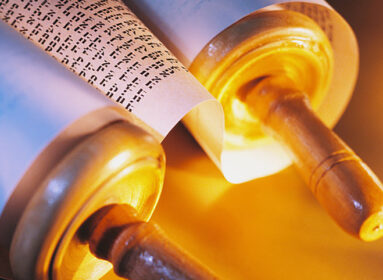
Miketz - Chanukah
By Shlomo Riskin
-The Chanukah struggle was between Judaism and Hellenism, Jerusalem vs Athens, a band of Maccabee traditionalists who waged war to prevent Jerusalem from becoming a Greek city-state (polis), hosting idolatrous Olympic games and Dionysian orgies.
But the products of Hellenism were much more profound than idols and orgies. Javan (Ion, Greece), son of Japheth and grandson of Noah, gave the world the philosophy of Plato and Aristotle, the literature of Sophocles and Euripides, the mathematics of Euclid and Pythagoras, the sculpture of Praxiteles, and the epic poetry of Homer. If indeed Western civilization is the result of Greco-Rome and Judeo-Christianity, and if our Bible is the fount of ethical wisdom and humane morality, then it was Greece that pioneered philosophic discourse, mathematics as the language of science, and the aesthetics of art, music and drama.
To be sure, there is a fundamental tension between the worldviews of Judaism and Hellenism. Whereas for us the God of love, compassion and truth stands at the center of the universe, with the human being created in the Divine image striving for morality and sanctity, in Athens the human being, was the embodiment of perfection; “the measure of all things” (Protagoras). The gods were created in his image.
On Chanukah, these two ideologies clashed and we emerged triumphant, but is there room for a synthesis? Can the soul of Jerusalem be garbed in the cloak of Athens? It depends on how we read the verse: “The Lord shall broaden and beautify Japheth, and he [Japheth, the glories of Greek culture] shall dwell in the tents of Shem,” in sacred synthesis. Another approach dictates that we must guard against the anthropocentric and hedonistic Japheth, who will try to shatter the fundamentally frail boundaries and ramparts of Shem: “The Lord shall broaden and beautify Japheth, but He, God, can only dwell in the tents of Shem” (Rashi, ad loc Gen. 9:27)!
I believe the answer is found in an incident recorded in the Talmud (Bava Kama 82b). Two brothers, descendants of the Hasmonean dynasty, were fighting one another not long after the Maccabean victory. One brother and his troops were based within Jerusalem, while the other brother supported by the Roman legions was camped outside the city walls. Despite their conflict, every day, one brother sent coins in a basket over the wall and the other brother purchased animals which he hoisted over the wall, so that the daily sacrifices of the Temple would not be interrupted. Using what the Talmud calls the language of “Greek wisdom,” an elderly man suggested that as long as the sacrificial rite continued, the brother on the outside would never conquer Jerusalem. The next day, when the coins for the purchase of sacrifices arrived, instead of sending back bullocks for the sacrifices, they sent a pig, and when the pig’s hoofs touched the city’s ramparts, Jerusalem was convulsed by an earthquake. The story concludes: “The sages then decreed, ‘Cursed be the individual who raises pigs, and cursed be the father who teaches his son Greek wisdom.'”
After the Chanukah experience and its aftershocks, one would have thought that Greek wisdom – Greek philosophy, Greek literature and Greek art – would have been banned. But this was not the case. The Talmud (Bava Kama 83a) goes on to praise the Greek language, and deems “Greek wisdom” a skill necessary for international political discourse. In fact, a parallel account at the end of Tractate Sota defines “Greek wisdom” as a special language of nuance and riddle used by politicians for the purpose of espionage – which is how Maimonides understood the Talmudic decree. He added that there was no contemporary application of the ban since that particular language had disappeared. Even later response (see for example Rivash, Rav Yitzhak bar Sheshet, Responsum 45) agree with Maimonides’ interpretation of “Greek wisdom” in the context of the ban. To be sure, he argues that philosophical tracts committed to the extirpation of Jewish theological principles are to be avoided, and even suggests that Maimonides and Gersonides were led astray by Greek philosophy; nevertheless, normative Judaism never codified a prohibition of studying Greek wisdom.
Apparently despite the dangers, the Jewish ideal remains the incorporation of the “beauty of Japheth within the tents of Shem.”
Shlomo Riskin is chancellor of Ohr Torah Stone and chief rabbi of Efrat, Israel.








 Southern New England Jewish Ledger
Southern New England Jewish Ledger








